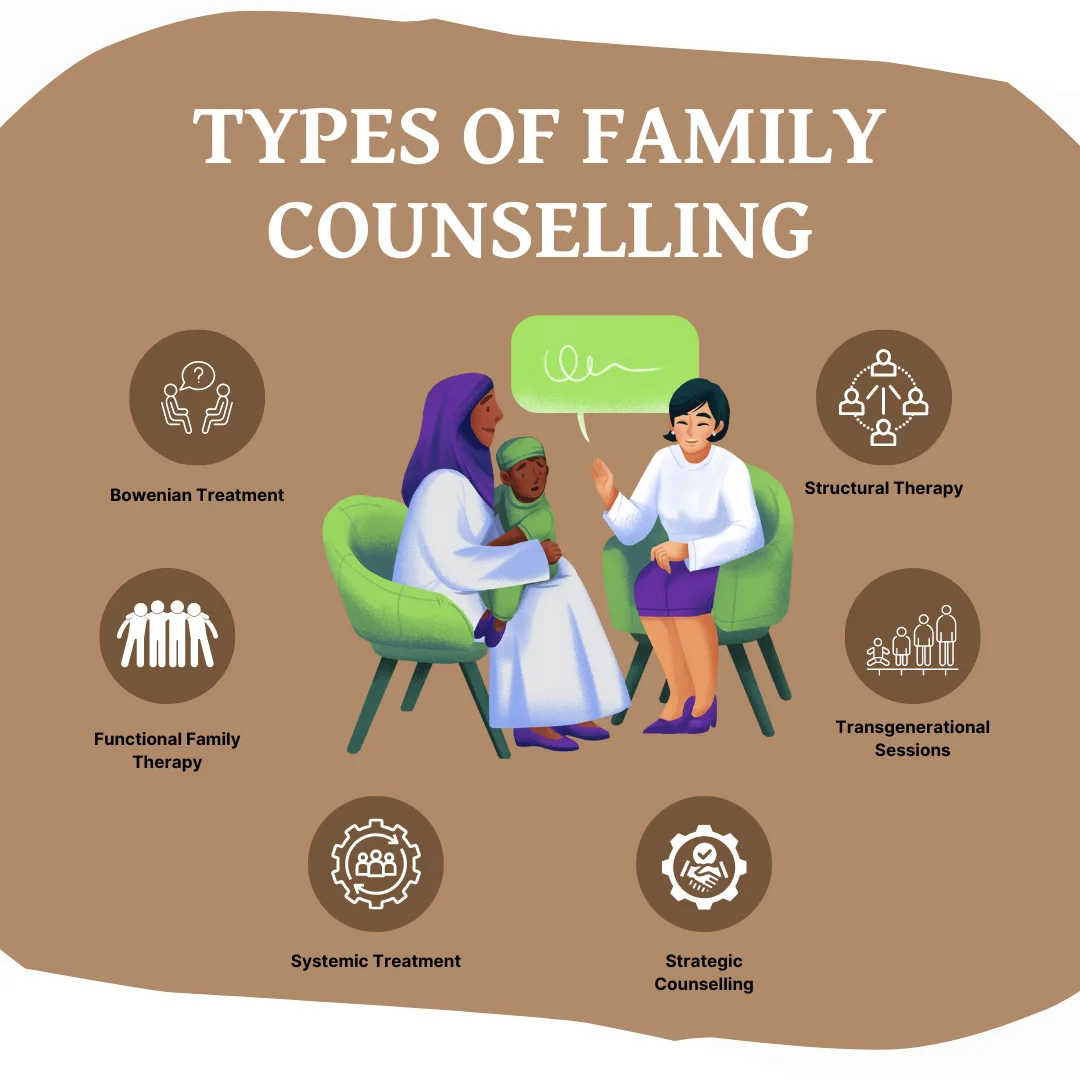Accessible low cost therapy: A Full Breakdown
Wiki Article
Checking out the Advantages of Virtual Therapy in Modern Mental Healthcare
The increase of virtual therapy marks a substantial shift in psychological healthcare. It uses enhanced accessibility, enabling individuals from varied histories to look for assistance without geographical constraints. Adaptability in organizing accommodates differing lifestyles, while the convenience of home can promote openness. Nevertheless, the ramifications of these adjustments extend past mere benefit. The advancing landscape of therapy increases important questions regarding its long-lasting effects on individual engagement and therapy end results.Boosted Availability for All
Conventional therapy often provides barriers such as geographical location and organizing problems, virtual therapy greatly improves access for people looking for mental wellness assistance. By removing the requirement for physical traveling, virtual therapy permits customers from remote areas or those with flexibility difficulties to connect with qualified specialists. This setting of therapy can get to underserved populaces that might do not have regional mental health sources, therefore dealing with disparities in accessibility to care. Furthermore, virtual systems can deal with diverse requirements, providing services in several languages and accommodating various social histories. Customers can engage with a broader range of experts, providing them with alternatives that line up with their specific demands and choices. This boosted availability fosters an extra comprehensive atmosphere, enabling people to seek help without the stigma frequently connected with in-person sees. In general, virtual therapy stands for a substantial advancement in making psychological wellness treatment a lot more easily accessible to all.Versatility in Scheduling Sessions

As virtual therapy remains to acquire grip, its intrinsic adaptability in scheduling sessions verifies to be a considerable benefit for several individuals. Unlike traditional in-person therapy, virtual therapy allows customers to pick session times that finest fit their individual and specialist commitments. This versatility fits those with demanding work routines, household obligations, or various other commitments that can make going to physical visits testing.
Furthermore, clients can quickly reschedule or readjust their sessions as required, decreasing the tension related to stiff appointment systems. The accessibility of various time ports throughout the week, including nights and weekend breaks, even more improves availability. This adaptability not only urges consistency present yet also cultivates a higher dedication to the healing process. Eventually, the versatility in scheduling sessions represents a transformative shift in psychological healthcare, encouraging people to prioritize their well-being without compromising various other facets of their lives.
Convenience of a Familiar Setting
The convenience of an acquainted atmosphere substantially enhances the effectiveness of virtual therapy for several clients. Involving in therapy from the security of their own homes enables people to really feel even more at simplicity, lowering anxiousness that may go along with typical in-person sessions. This familiarity can assist in open communication, enabling clients to reveal their thoughts and sensations more freely.Additionally, the existence of personal items and the capacity to regulate their surroundings can add to a complacency and leisure. Clients often report that being in a comfy area enables them to focus much more on the therapeutic procedure as opposed to the establishing itself.
Furthermore, the casual nature of virtual sessions can help liquify barriers that might exist in a conventional office environment, cultivating a deeper connection with specialists. On the whole, the convenience of familiar environments plays a vital duty in improving the healing experience and performance for several people looking for mental wellness assistance.
Broader Range of Restorative Options
A wider series of healing choices becomes readily available with virtual therapy, enabling clients to accessibility numerous modalities that might not be possible in conventional setups. This versatility enables individuals to explore varied approaches such as cognitive-behavioral therapy, mindfulness practices, art therapy, and even specialized treatments like trauma-informed treatment or dialectical behavior modification.Clients can pick from a broader range of specialists, consisting of those that specialize in niche locations or specific populations, boosting the probability of discovering a suitable match. Virtual systems usually provide accessibility to group therapy sessions, support areas, and workshops that may be geographically inaccessible otherwise.
This range equips clients to take part in their healing process according to their special preferences and requirements, possibly enhancing motivation and dedication to treatment. Therefore, the landscape of mental health care comes to be more inclusive and versatile, accommodating a bigger selection of individual experiences and difficulties.
Reduced Preconception Bordering Therapy
Accessing therapy with virtual platforms contributes to a considerable reduction in the preconception traditionally related to psychological healthcare. By giving a discreet and private setting, virtual therapy permits people to seek assistance without the concern of being judged or determined. This anonymity attract those who might otherwise be reluctant to seek in-person therapy due to societal understandings bordering psychological wellness.As the prevalence of virtual therapy increases, it stabilizes the conversation around mental health, making it an extra acceptable part of everyday life. People often feel extra comfy reviewing their experiences on the internet, promoting openness and decreasing feelings of isolation. The availability of these services likewise urges a wider group to involve with mental health resources, fostering a culture of assistance as opposed to shame. Eventually, the surge of virtual therapy plays an essential role in reshaping attitudes towards seeking help, adding to an extra accepting culture relating to mental health and wellness challenges.
Cost-Effectiveness and Cost

Decreased Session Prices
Several individuals looking for psychological wellness support locate that virtual therapy significantly minimizes session prices contrasted to conventional in-person alternatives. The removal of travel costs and time off work typically contributes to overall savings. Furthermore, lots of virtual therapists offer affordable rates because of reduced above prices related to preserving a physical workplace. This change in expense allows clients to accessibility top quality mental health services without the monetary strain that might come with traditional therapy. For several, this cost makes it possible for more constant sessions, which can improve therapy results. Therefore, virtual therapy not just equalizes access to mental wellness care but likewise supplies a lasting monetary model that straightens with clients' spending plans, making mental wellness support more achievable for a larger audience.Increased Accessibility Alternatives
While standard therapy typically presents logistical obstacles, virtual therapy substantially increases access options for people seeking psychological healthcare. By removing the requirement for traveling and allowing adaptable organizing, virtual therapy accommodates diverse lifestyles and commitments. This access is specifically useful for those in remote locations or with movement challenges. Furthermore, the cost-effectiveness of virtual therapy lowers financial pressure, making mental health and wellness solutions extra reachable. Numerous systems offer tiered pricing or moving range fees, promoting price. Insurance business significantly identify virtual therapy, further enhancing its economic accessibility. In general, virtual therapy not only expands the scope of that can obtain care however also addresses financial barriers, making mental health support much more comprehensive and possible for all.Enhanced Connection of Care
Improved connection of care becomes a considerable benefit of virtual therapy in modern mental healthcare. This method permits patients to preserve consistent communication with their specialists, regardless of geographical barriers or scheduling problems. virtual therapy. The adaptability of virtual sessions cultivates normal check-ins, which are crucial for keeping an eye on progression and adjusting treatment intends get more info as requiredIn addition, digital health and wellness records and telehealth platforms facilitate seamless details sharing among treatment carriers. This interconnectedness assures that all experts entailed in a client's treatment are updated on therapy developments, leading to more coordinated and efficient treatments.
People usually experience decreased stress and anxiety and boosted interaction as a result of the benefit of accessing therapy from acquainted settings. Such accessibility improves adherence to treatment routines, ultimately improving end results - couples counselling. To summarize, virtual therapy not just bridges voids in psychological wellness solutions but additionally fortifies the continuity of care, a critical part of effective therapeutic connections
Frequently Asked Concerns
How Does Virtual Therapy Make Sure Privacy and Personal Privacy for Customers?
The present inquiry addresses the actions virtual therapy utilizes to safeguard client discretion. Utilizing encrypted platforms, secure logins, and conformity with laws like HIPAA, virtual therapy guarantees that sensitive details remains personal and hard to reach to unauthorized people.Can I Switch Therapists Easily in Virtual Therapy?
Switching therapists in virtual therapy is generally uncomplicated. Clients can interact their need for an adjustment with the system, permitting flexibility in locating a much better match without the logistical difficulties of in-person consultations.What Technology Do I Need for Virtual Therapy Sessions?
To take part in virtual therapy sessions, a private normally requires a dependable web connection, a computer or smart device with a camera and microphone, and accessibility to a secure video conferencing platform defined by their therapist.
Are Virtual Therapy Sessions as Effective as In-Person Sessions?
Recent studies show that virtual therapy sessions can be equally efficient as in-person sessions, relying on the person's choices and conditions. Factors such as convenience and availability may improve the overall healing experience for some customers.What Should I Do if I Experience Technical Issues During a Session?
If technological problems occur during a session, one must comfortably connect the trouble to the therapist, attempt to reconnect, or button to a back-up approach. Patience and versatility are vital in taking care of these interruptions.Report this wiki page